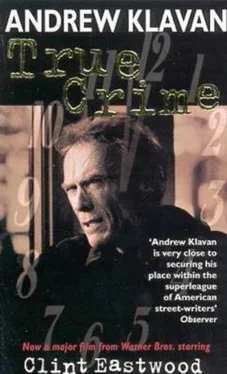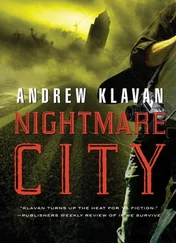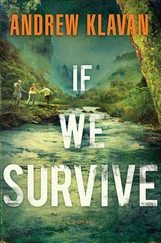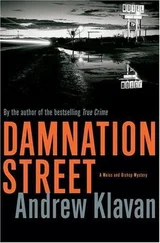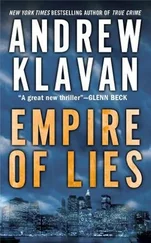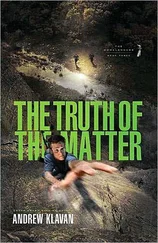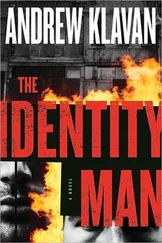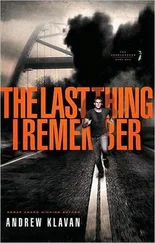Andrew Klavan - True Crime
Здесь есть возможность читать онлайн «Andrew Klavan - True Crime» весь текст электронной книги совершенно бесплатно (целиком полную версию без сокращений). В некоторых случаях можно слушать аудио, скачать через торрент в формате fb2 и присутствует краткое содержание. Жанр: Криминальный детектив, на английском языке. Описание произведения, (предисловие) а так же отзывы посетителей доступны на портале библиотеки ЛибКат.
- Название:True Crime
- Автор:
- Жанр:
- Год:неизвестен
- ISBN:нет данных
- Рейтинг книги:4 / 5. Голосов: 1
-
Избранное:Добавить в избранное
- Отзывы:
-
Ваша оценка:
- 80
- 1
- 2
- 3
- 4
- 5
True Crime: краткое содержание, описание и аннотация
Предлагаем к чтению аннотацию, описание, краткое содержание или предисловие (зависит от того, что написал сам автор книги «True Crime»). Если вы не нашли необходимую информацию о книге — напишите в комментариях, мы постараемся отыскать её.
True Crime — читать онлайн бесплатно полную книгу (весь текст) целиком
Ниже представлен текст книги, разбитый по страницам. Система сохранения места последней прочитанной страницы, позволяет с удобством читать онлайн бесплатно книгу «True Crime», без необходимости каждый раз заново искать на чём Вы остановились. Поставьте закладку, и сможете в любой момент перейти на страницу, на которой закончили чтение.
Интервал:
Закладка:
“The source refused to be named and the confession has not been confirmed by officials at the prison, but the source told KSLM that Beachum said he was sorry for the grief he had caused the victim’s family. Mrs. Wilson’s father, Frederick Robertson says sorry is not enough.”
I leaned against the wheel. I stared down at the floor, unseeing. Frederick Robertson spoke on the radio.
“Sure he’s sorry. Now he’s facing his punishment I’m sure he’s sorry as hell. But that doesn’t bring my daughter back. That doesn’t bring her baby back, my grandchild.”
“The governor,” added the newsman, “has already said he will not call off the execution.”
I lifted my head. I looked around me, dazed. Confessed? I thought. I saw the gas station where Michelle Ziegler had crashed just behind me. I put the Tempo into reverse and backed over the curb into the lot. I felt dizzy and sick. I felt as if a black ooze was spreading through me. Depression. Nausea. Spreading through me. And something else too. Relief. I hated to admit it, but I felt relief. The man had confessed. It was over. I was off the dime.
I slowed the Tempo behind a line of parked cars and stopped it there. The newscaster had now gone on to other things. I turned off the radio. I sat gripping the wheel, shaking my head, reswallowing the contents of my stomach. Confessed , I thought. Confessed. It was over.
I put a cigarette in my mouth, hoping to calm my gut. Strangely enough, I believed the story completely, believed it thoroughly the moment I heard it. Beachum had confessed. He was guilty. It seemed to me to make sense of everything. It seemed to make all the pieces of the long day fall into place. There was no innocent man on death row. There was no last-minute race for justice. It had been a dream. I had known all along, deep down, it was a dream. But I had dreamed on. And now he had confessed.
I punched the steering wheel with the heel of my palm. How could I have deceived myself like that? How, knowing that I might deceive myself, had I deceived myself notwithstanding? But I knew the answers to these questions too. I could trace it back clearly over the day. It had started with the phone call from Bob. His phone call to Patricia. I had known from that moment what was going to happen: the end of my job, the end of my marriage. Just like in New York, only worse. And I was desperate not to go through it all again. I had seized on this story-the Beachum story-the second it had come into my hands. I had seized on it crazily in the wild hope of saving myself. Insignificant details-nonsense details-the gunshot Nancy Larson didn’t hear, the rack of potato chips, the accountant’s self-doubting eyes, a black kid buying a soda in the parking lot outside-I had seized on them all and tried to turn them into high-drama in my mind. I had turned them into a dream, a dream of salvation, of a last-minute reprieve for me and Beachum both.
But I was not dreaming anymore. He had confessed. I could see the whole business clearly. I could see I had nothing. I had nary a damn thing even to suggest that Beachum was innocent of the crime. How could I have? In one day? After a police investigation? After press coverage. After a trial, after six years of appeals. Could anyone-could anyone less desperate to salvage his miserable life-could anyone anywhere believe that the American justice system would make a fatal mistake so simple that it could suddenly be put right by a single man in a single day?
I laughed at that. I had to laugh. I lit my cigarette and sucked the smoke and laughed. What an asshole I was. Thirty-five years on the face of the earth and still as deluded about life as a college kid.
I switched off the engine. I kicked the door open, got out and slammed it shut. I walked across the lot to a phone booth that stood beside the gas station wall.
I called the paper first, but Alan had left for the day. I called him at home. He answered the phone breathless. I could hear Louis Armstrong and Ella Fitzgerald singing in the background. “Stompin’ at the Savoy.” I could hear Alan’s wife singing along with them at the top of her lungs. “What?” said Alan, gasping.
“It’s Everett.”
“Ev! You dumb shit! He confessed.”
“I just heard.”
“Even Bob laughed.”
“I hope you took pictures.”
“Look,” he said, coughing a little as his breath came back. “It might not be so bad. Mrs. Bob called after you left. Bob went home to her. Maybe they’ll work things out. Maybe he’ll forgive you.”
I blew smoke at the booth’s glass wall. “I don’t think Bob ever forgave anybody anything in his entire life.”
“Oh yeah. Good point,” Alan said. “Well, sorry. You’re screwed.”
“I guess.”
“I can’t lose him.”
“No.”
“Lowenstein loves the guy. Everybody loves the guy.”
“Sure.”
“Maybe you could file a grievance or something. I mean, look, we all know it’s personal. He’s blowing this Beachum interview out of proportion.”
“No, no. That’d drag it out,” I said. “I don’t want to do that to Barbara.”
There was a pause. “Well, my friend …”
“Don’t worry about it.”
“I’ll get you a month’s notice. I’ll call some friends at other papers. I’ll do what I can do.”
“I know you will, pal. Dance on.”
“Amen, brother.”
I broke the connection, fed another quarter into the slot and called my wife. She answered as she always did: abrupt, annoyed, as if she’d been interrupted in the middle of a million chores.
“It’s me,” I said. “Has the kid gone to bed yet?”
“Not yet,” she said brusquely. “I was just getting him ready.”
“Keep him up another fifteen minutes, willya? So I can say goodnight to him.”
For a moment, she didn’t answer and in the silence I felt as if a fist had squeezed my heart.
“All right,” she said quietly then. “Fifteen minutes. Will you be here?”
“I’ll be there,” I answered. “I’m finished. I’m through. I’m coming home.”
7
When Reverend Stanley B. Shillerman walked into Luther Plunkitt’s office, the warden was sitting in the high-backed leather chair behind his desk. Luther could not keep his eyes from moving down the man, from his beatific face, to his open white shirt, to his jeans, to his brown loafers. Luther examined them all with a gaze of steel.
The warden was not a man who hated many people. He prided himself on his tolerance, on watching the human comedy from a wry, forgiving point of view. With a firm sense of right and wrong, he’d found, you could make your way from cradle to tomb downright calmly, if you worked at it. You did your job, you protected your own square mile and you let the villains and fools fend for themselves. That was his philosophy. So even he was not prepared for the throat-clogging rush of rage he felt against the Reverend Stanley B. He felt it rising to the surface of him, shining like light through the pores of his skin, coming off him in waves. He could imagine the waves, breaking against the other man, battering him, swallowing him, dragging him under. He could not remember the last time he had been so angry.
“Reverend,” he said, leaning forward, folding his hands neatly on his desk blotter.
Shillerman fashioned an expression of sober benevolence on his face but, as their eyes met, Luther spotted a flush of color come into the preacher’s soft cheeks. The gentle creases of the skin there looked clammy. Luther was glad. Shillerman could feel the waves of anger coming off him too. Luther nodded, satisfied. He smiled blandly.
“How’s it going in there, Luther?” Shillerman said, a bit hoarsely. “Anything I can do? I’ve been, you know, visiting with the prisoners. Lending an ear to their concerns but, you know, if the condemned man needs me, or any of the men feel they could use a willing ear-I’m their man. Here I am.”
Читать дальшеИнтервал:
Закладка:
Похожие книги на «True Crime»
Представляем Вашему вниманию похожие книги на «True Crime» списком для выбора. Мы отобрали схожую по названию и смыслу литературу в надежде предоставить читателям больше вариантов отыскать новые, интересные, ещё непрочитанные произведения.
Обсуждение, отзывы о книге «True Crime» и просто собственные мнения читателей. Оставьте ваши комментарии, напишите, что Вы думаете о произведении, его смысле или главных героях. Укажите что конкретно понравилось, а что нет, и почему Вы так считаете.
